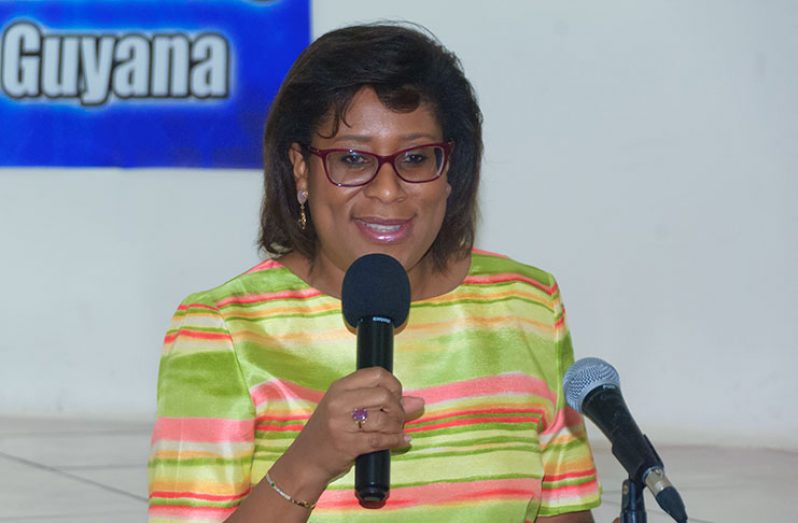-Minister Hughes said ICT development to focus on persons with disabilities
TECHNOLOGY continues to unlock endless opportunities for people across the world, especially for persons living with disabilities.
“For them a phone is a lifeline, it gives them the ability to communicate,” said Minister of Public Telecommunications, Catherine Hughes in an invited comment.
The accessibility features of a phone are often unappreciated by persons but, though small, they provide many opportunities for persons living with disabilities.
According to the minister, once they have access to a phone it means that they have access to apps which would help, for instance a blind person to navigate their way through streets and so forth.
“I spent a session with persons from the blind community, some of whom were holding the phone and being excited because they could communicate without being able to see,” said Hughes, adding that Government must make renewed commitment to do more for persons living with disabilities.
The minister explained that there are innovative ways to move forward and to ensure that focus is placed on persons living with disabilities.
“We could even look at reducing taxes on phones for the individuals who use the technology to guide them,” said Minister Hughes.
The United Nations Convention on the Rights of Persons with Disabilities (UN CRPD) adopted in 2006, establishes accessibility in a more comprehensive manner as a cross-cutting factor that enables persons with disabilities to live independently and participate fully in all aspects of life.
Accessibility is a general principle of Article 3 of the Convention and is notably included as a general obligation of states.
In Article 2, accessible information and communication technology are also considered definitions of communication.
Article 9 provides a comprehensive provision on accessibility and sets out a range of appropriate measures to be taken by states, to ensure persons with disabilities have access on an equal basis with others. The measures include: to the physical environment, transportation, information and communications, including information and communications technologies and systems, and to other facilities and services open or provided to the public, both in urban and in rural areas, to enable persons with disabilities to live independently and participate fully in all aspects of life.
Accessible ICT can provide persons with disabilities to increased access to education, skills training, employment and the ability to participate in the economic, social and cultural life of their communities.


.jpg)











